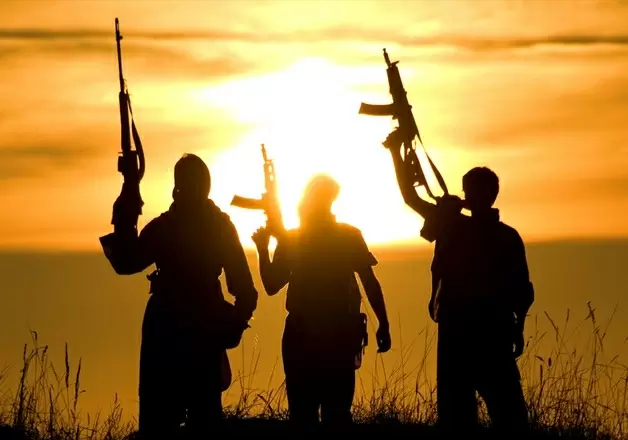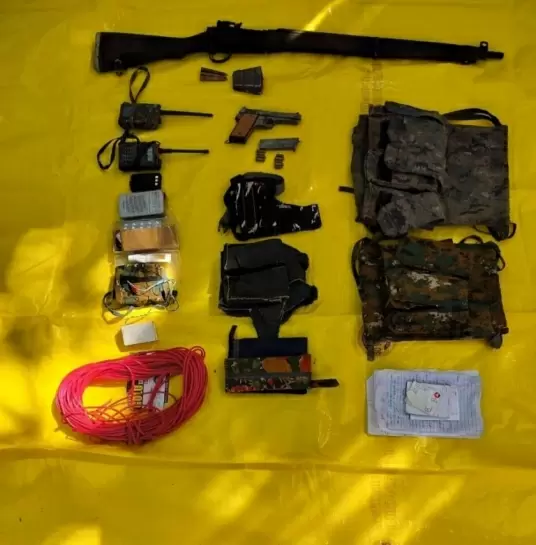Taliban and the terror spinoff in Bangladesh
16-August-2021

The swift advance of the Taliban in provincial capitals of Afghanistan have taken every one by surprise. While the onslaught and even possibly victories were not unanticipated, the swiftness with which cities like Herat and Kandahar have been captured by the Taliban - often without much fight - has stunned the world. And set alarm bells ringing.
For India it is tense moment with hardly any good options on the table. Apart from securing it's projects, interests, representatives and citizens inside Afghanistan, it also has to be ready to deal with the potential blowback of Taliban's victories, irrespective of whether they ultimately rule Kabul or not. While political Islam in the region will receive a fillip, there is every possibility of heightened terror activities as terror groups allied to Afghanistan will be strengthened and yet others inspired. Currently, India's attention is focused on the LoC with Pakistan and the LAC with China. But the border with Bangladesh should also be in focus and closely monitored.
On July 18, one of Bangladesh's largest circulated newspaper 'Bangladesh Pratidin' reported that some members of the banned Ansar al Islam group have travelled from Chittagong to Pakistan by sea and from there to Afghanistan. Through the arrest of four of the group's members security officials have come to know that many others are being encouraged to travel to Afghanistan to join the ranks of the Taliban though officials have not confirmed this. If true, however, this should not come as a surprise.
During the Soviet jihad many Bangladeshi citizens (mostly students and teachers of madrassahs) had travelled to Afghanistan to join the ranks of the anti-Soviet mujahideen. Bangladesh based terror groups like the Harkat-ul-Jihad-al-Islam (Huji), Jamaat ul Mujahideen Bangladesh (JMB), Ansar ul Islam, etc. have their genesis in this jihad. Most of the fighters returning from Afghanistan joined them. During the Afghan war they were trained in guerrilla warfare and usage of heavy arms. With the subsequent rise of the Taliban many of them joined that organisation. Mullah Omar for instance is said to have 200 recruits from Bangladesh amongst his personal guards.
When the US together with the Northern Alliance overthrew the Taliban government many of these fighters returned to Bangladesh, established these groups and demanded the installation of a similar political system in Bangladesh, which since it's birth was seen as a beacon of democracy, pluralism, and secularism in the Muslim world. The slogan "Amra hobo Taliban/ Bangla hobe Afghan' (We will be Taliban, Bangla(desh) will be Afghanistan) became a popular slogan in the 1990s in Bangladesh, openly chanted. Their growth corresponded with the rule of the Bangladesh National Party which is tied to the hardline Jamaat-I-Islami, known to be close to Pakistan's ISI, and has encouraged the Islamisation of Bangladesh.
Bangladesh witnessed numerous terror attacks. Tuesday, 17th August, for instance, will mark the 16th anniversary of the nation wide terror attacks In Bangladesh targetting 63 of Bangladesh's 64 districts,which included government buildings, train stations, courtrooms etc. - a prelude to the 2008 Mumbai attacks. The attacks were the handiwork of the Jamaat-ul-Mujahadeen Bangladesh (JMB), whose founder and spiritual leader Shaykh Abdur Rahman had participated in the Afghan jihad.
While authorities have cracked down on these terror groups, others like the Ansar ul Islam, said to be the Bangladesh chapter of Al Qaeda, and others linked to the ISIS have mushroomed. The Ansar is said to draw it's leadership fron both Bangladesh and India. Attacks against women, members of Hindu minority community, secular groups, members of the LGBT groups, writers, artists have increased. Many Bangladeshis had also migrated to the Islamic State.
Bangladesh has also long been witnessing the radicalisation of society. The Jamaat-e-Islami, which had allied with the Pakistani army during Bangladesh's brutal liberation war, remains a potent force with a strong presence amongst the youth and students groups. Though many of its leaders have been imprisoned and even executed on charges of war crimes, other groups like the Hefazat-e-Islam have sprung up as a front. The Hefazat, launched in 2010 to "protect Islam" from the secular ruling Awami Leage Party , was spurred particularly by a proposed policy to confer equal inheritance rights to women. The Hafazat mounted the protests during Prime Minister Modi's visit to Bangladesh earlier in March this year to celebrate the golden jubilee of Bangladesh's Independence and the birth centenary of its founder Sheikh Mujibur Rahman. The protests left 12 people dead across different districts.
The recent Taliban victories, therefore, has the potential to provide a fillip to such groups and galvanize more recruits to their cause. Many social media posts are circulating in Bangladesh in support of the Taliban. "Bangladesh has a long history of joining Jihad and proxy wars in Afghanistan, Kashmir, Chechnya, Aceh province in Indonesia, Mindanao in the Philippines," points out veteran journalist Saleem Samad. The Rohingya camps teeming with dispossesed youth provide yet another fertile ground for terror recruitment and some Bangladeshis are also believed to be living amongst them having joined the banned Arakan Rohingya Salvation Army (ARSA).
Given the ease with which criminals, including those accused of terror realted activities, from Bangladesh are known to cross over the border into India, and also given how events in Bangladesh can impact India, this is an area security agencies should keep strict vigil on.-IANS
Bondi Beach Terror Attack: Shooters Sajid-Naveed Identified As Pakistani-Origin Father-Son Duo
Legendary Singer S.P. Balasubrahmanyam's Statue Unveiled In Hyderabad Amid Row
In BJP, Anyone Can Rise From Pasting Posters To National President: Giriraj Singh On Nitin Nabin’s Elevation
Ram Janmabhoomi Movement Veteran Ram Vilas Vedanti No More, Yogi Adityanath Pays Tribute
Rajinikanth Turns 75: Anil Kapoor, Kajol Lead Heartfelt Birthday Tributes









